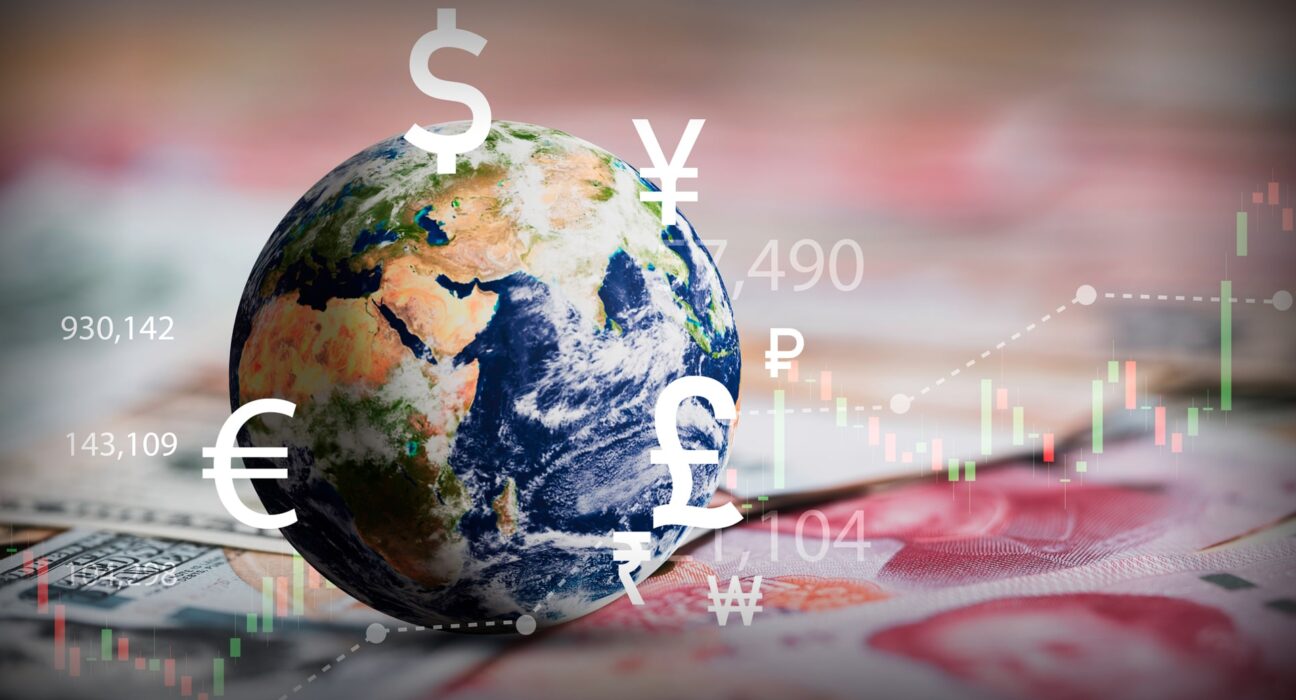Currency market is the world’s largest financial market with a daily volume of over 5 trillion USD, also known as the foreign exchange market or FOREX market in short, it has managed to gain its popularity and dominance within the financial markets due to its expansive definition of being called a global currency market; that allows the buying and selling of products globally with the comfort of paying in local currency despite the buyers’ local currency preferences.
Moreover, these global transactions require a high amount of literacy in current exchange rates that can change in accordance to regional, political and economic influences, whereas currencies do not come with a single worth, instead would need currency conversions.
In contrast, even thou every currency can be converted to any currency today (4/23) there are certain currency pairs that are being paid very close attention by corporates.
The major currency pairs that are exchanged in large numbers currently stand as;
These currency pairs which are considered as major currency pairs are some of the most stable and mostly exchanged currencies within the global currency market, on the contrary; these are just four pairs out of a million currency pair combinations that can be made.
However, knowing the rates of major currency pairs is an important attribute that traders and corporates should possess, as these pairs are standardized in a global context.
As mentioned earlier, political and economic influences can affect the major currency pairs as a whole, which leads to the need to know about safe haven currencies;
With every currency having its own identities and roles within their own region, fluctuations and hikes are common for every currency, those that have the least affect on currency market are considered to be safe haven currencies.
Some simple examples to understand that would be;
- Japanese Yen is a safe haven currency since Japan has a stable economy.
- Swiss Franc is a safe haven currency because Switzerland is a safe place to store money.
Anyone who is performing a transaction within the global currency market needs to be mindful about the future exchange figures in order to make impactful investments, therefore they need to have a relatively fair knowledge about politics taking place within certain regions that affect their economies.
EUR vs. USD
Title Transfer Facility (TTF) gas prices, Europe’s primary benchmark for gas costs, have fallen to pre-invasion lows as the region sees the warmest weather on record. This dramatic drop in gas and electricity prices benefits the economy and should keep the region from experiencing the brutal recession that was predicted.
According to Wallet Investor, the EUR/USD is expected to decrease over the next 12 months, with the pair closing at 0.993 in January 2025 and 0.965 in January 2027. This pessimistic projection is echoed by the Economy projection Agency, which is pessimistic about the EUR/USD pair’s bright future and predicts that the rate will barely close over $1 in 2025. The duo will not rise in 2026.
USD vs. JPY
Japan’s Tankan Large Manufacturing Index for the first quarter (Q1) of 2023, a closely observed output guide by the Bank of Japan (BoJ), eased to 1.0 from 7.0 previous readings and 3.0 expected. On the other hand, Japan’s Jibun Bank Manufacturing PMI for March improved to 49.2 from 48.6 previous. However, the below-50 figure suggests a contraction in private manufacturing activities.
On the other hand, the US Core Personal Consumption Expenditures (PCE) Price Index, the Fed’s preferred gauge of inflation, declined to 4.6% YoY in February from 4.7% expected and prior. On a monthly basis, Core PCE inflation rose 0.3% while easing below the market expectation of 0.4% and a downwardly revised 0.5% previous reading.
Source: Investing.com
GBP vs. USD
GBP/USD has started the new week under bearish pressure and declined below 1.2300 before staging a rebound in the European morning. The pair could have a difficult time regaining its traction unless the market mood improves later in the day.
Investors are concerned about rising crude oil prices causing energy inflation to remain uncomfortably high.In case safe-haven flows drive the action in financial markets in the second half of the day, the US Dollar could continue to gather strength and weigh on GBP/USD. As of writing, S&P 500 Futures were down 0.15% on the day while Dow Futures were up 0.3%.
.
USD vs. CHF
The USDCHF currency pair is often called ‘The Swissie’. The Swiss Franc is the last Franc still in issuance in Europe. CHF is shorthand for ‘Confoederatio Helvetica’ Franc, and represents the economy of the neutral nation situation in the center of Europe.
Switzerland has long been a key banking center for customers around the world, and the secrecy with which they maintain their banking operations has made them one of the more desireable locations for storing cash. This has helped to bring considerable strength to the Swiss Franc, pressuring exporters from the nation. When the European Debt Crisis enveloped the continent, massive inflows into Swiss Francs made the situation worse until eventually the Swiss National Bank (SNB) created a peg to the Euro at a rate of 1.2 Swiss Francs for every 1 Euro. If the EURCHF currency pair fell below 1.20, the SNB proposed to sell CHF and buy EUR to support the 1.20 floor.
Are the Exchange Rates Accurate?
Exchange rates can be complicated in terms of future predictions, and deciding the rate values according to regionally politics can make it harder to predict as the regime changes and other political influences can impact inflation and economies in a matter of seconds, therefore corporates need to be familiar with all the geo-political stances regionally and be able to read politicians’ statements perceptively.












